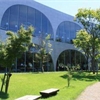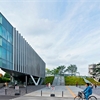Summary of quota usage by profession in Australia 3717
 Rieter University,The first batch of overseas study institutions certified by the Ministry of Education,Accredited by the world's top ICEF Education Exhibiting Organization (Screened Agency),Member of the National Overseas Study Agency Service Alliance (COSSA),Member of Beijing Overseas Study Service Industry Association (BOSSA),China Education Association for International Exchange self-funded study abroad intermediary service branch director unit,More than 10 years of experience in overseas study and immigration services,We have helped thousands of students achieve their dreams of studying abroad and finding jobs。
Rieter University,The first batch of overseas study institutions certified by the Ministry of Education,Accredited by the world's top ICEF Education Exhibiting Organization (Screened Agency),Member of the National Overseas Study Agency Service Alliance (COSSA),Member of Beijing Overseas Study Service Industry Association (BOSSA),China Education Association for International Exchange self-funded study abroad intermediary service branch director unit,More than 10 years of experience in overseas study and immigration services,We have helped thousands of students achieve their dreams of studying abroad and finding jobs。
If you have any questions about studying abroad and working abroad, please call us 022-2328-9071/9075
Since July 1, 2012, Australia's latest skilled migration system SkillSelect has been implemented for half a year. In this half year, then what are the most popular immigrant professions?The following is a summary analysis of the use of quotas for each occupation, and I hope it will be helpful to you。

As shown in the above table: Chemical and Materials Engineer quota has been used up;ICT business and systems analysts, electronics engineers and communications engineering professionals followed closely, with other categories of engineering professionals and software engineers also exceeding 50%。The accountant only uses 22.Nurses and secondary school teachers are less than 10%。There are several reasons why large quota holders such as accountants, nurses, teachers, etc., use very little:
1. Limited by IELTS score
ICT and Engineering career technical assessment requirements are relatively low, ACS career assessment does not require IELTS score, while EA career assessment only requires IELTS score of 6。Accounting, nursing, and teaching require no IELTS score of 7 to pass the vocational assessment。For this reason, the accounting, nursing and other professions that should be popular are not popular, which also reflects the passing rate of IELTS 4 and 7 points is not very high。
Second, the number of applicants is large
As can be seen from the chart above: the ICT quota is not low, but due to the strong number of applications, it is rapidly consumed。The ICT industry is a hot industry all over the world, so it is natural to reserve enough applications for Australia's skilled migration base。Overseas ICT career applicants in India, China and the West can be said to be three-pronged, while ICT courses in many colleges and universities in China are supplemented by PY career years。There is a real need for ICT professionals in the Australian market, which is why this profession is not losing its popularity。
Engineering occupations, on the other hand, suffer from scarce quotas。Many engineering majors have only a few hundred places a year, and chemical and materials engineers have only 120 places, so they are used up in less than half a year。On the one hand, Australia does not need many engineering professionals, and on the other hand, the world can supply a large number of engineering professionals, so there is a serious imbalance。
Three, the number of international students to reduce IELTS scores limit domestic students
In the accounting profession, the majority of applications are still domestic。On the one hand, the number of overseas students has decreased significantly in the past two years, which has reduced the base of PR application. On the other hand, IELTS scores have severely limited the number of domestic students applying. Compared with the quota of accounting, the proportion of accounting use is significantly less。However, because the domestic student base is still large, the absolute total number of accountants is not low。














